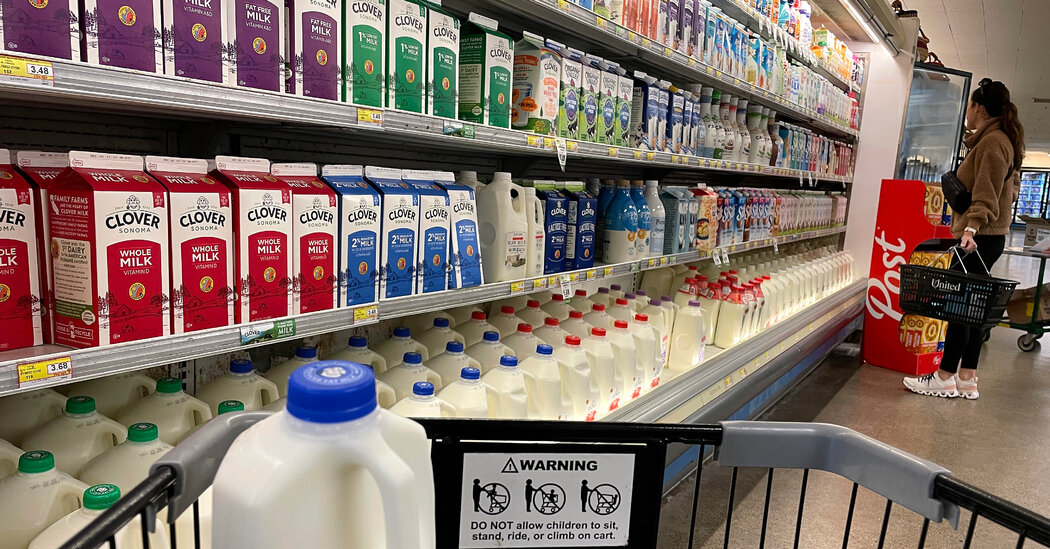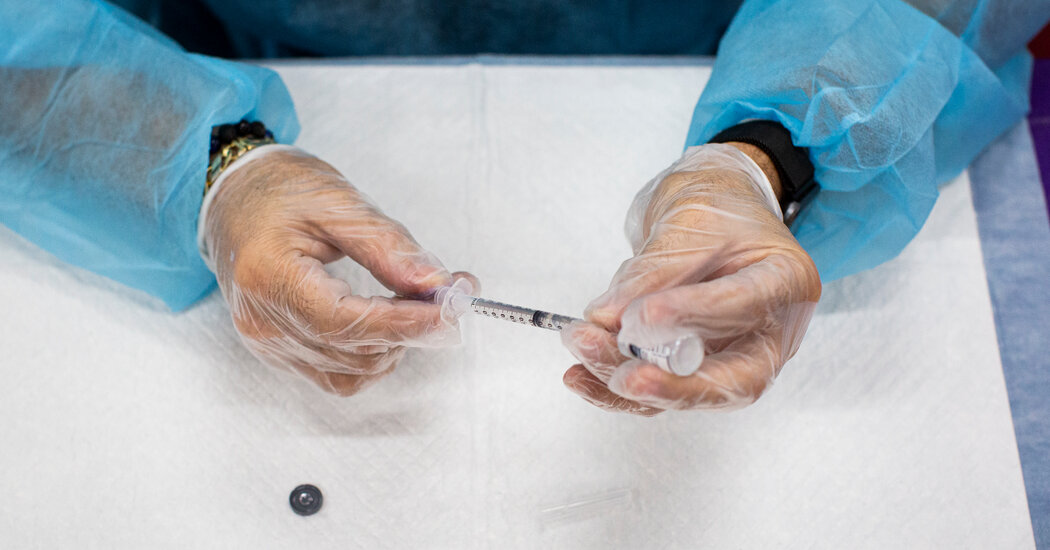Preserving a $5 billion coronavirus vaccine development program is among the White House’s priorities in discussions with House Republicans over clawing back unspent Covid-19 funds.Biden administration officials were working on Tuesday to preserve funding for key components of the federal coronavirus response in negotiations with House Republicans over a deal to raise the debt limit, according to senior administration officials familiar with the talks.Administration officials are seeking to protect roughly $5 billion in funding for a program to develop the next generation of coronavirus vaccines and treatments. They are also looking to preserve more than $1 billion in funding for an initiative to offer free coronavirus shots to uninsured Americans, according to the officials.The funds that the administration is using for the two programs have already been approved by Congress, but they are now potentially in jeopardy because Republicans are seeking to extract spending cuts from the Biden administration as a condition for raising the debt limit.As one component of a debt limit deal, House Republicans want to reclaim tens of billions of dollars in unspent funds from previously approved Covid-19 relief legislation. It was unclear on Tuesday specifically which funds might be clawed back as part of a deal, though the administration and congressional negotiators have found some agreement on the topic. President Biden said this month that rescinding unspent coronavirus funds was “on the table.”Representatives for the White House and Speaker Kevin McCarthy did not immediately respond to requests for comment.Some White House officials view the vaccine development program, called Project NextGen, as the most important Covid measure to protect in the debt ceiling talks. It is loosely modeled on the Trump administration’s vaccine development program, known as Operation Warp Speed, which marshaled a series of effective shots to Americans in record time.Biden administration officials had repurposed other coronavirus response funds this year to support the NextGen program, including some money designated for testing, with the aim of delivering a more durable or effective vaccine as early as next year. While no contracts have been signed with vaccine manufacturers yet, the program could amount to one of the most ambitious undertakings in the administration’s coronavirus response, which moved into a new phase with the expiration of the public health emergency on May 11.Project NextGen aims to fund the development of coronavirus vaccines that use different technology from those made by Moderna and Pfizer. Such new vaccines could potentially offer longer-lasting protection against a wider array of coronavirus variants or better defense against infections.Vaccines administered via the nose or the mouth, known as mucosal vaccines, are among the options that administration officials are planning to support, with the aim of rolling one out as early as the fall of 2024, officials said. (In the shorter term, federal regulators are expected to authorize another round of booster shots later this year.)The project also intends to fund the development of pancoronavirus vaccines, which would protect against different coronaviruses. Officials are planning to fund the development of new monoclonal antibody treatments as well.Dawn O’Connell, the assistant secretary for preparedness and response at the Department of Health and Human Services, said in an interview this month that federal officials were busy surveying possible vaccine options for the project and lining up potential manufacturers.“We’re looking at all of this and figuring out what the gaps are, what is the thing we need most right now, and investing in those candidates,” Ms. O’Connell said, referring to the different technologies that could be used for the vaccines.By delivering vaccines directly to the nose or the mouth, where the virus first gains entry and starts replicating, scientists hope to be able to head off more infections before they begin, reducing the spread of the virus more dramatically than current injectable shots can.Public health experts believe pancoronavirus vaccines can potentially broaden people’s immune responses to the virus and, in the process, help people build defenses against new variants before they even arrive.
Read more →


